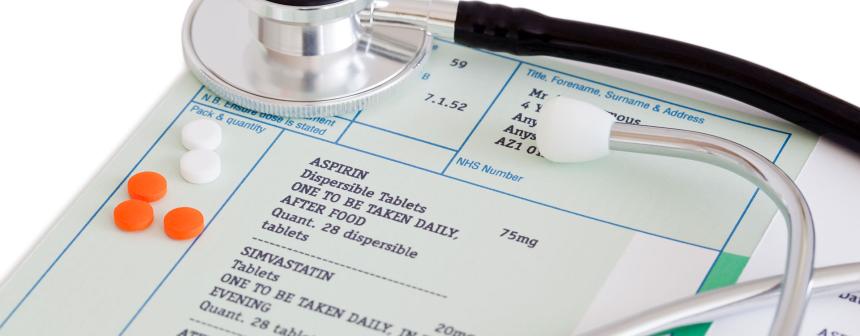Common Heart Disease Medications and What They Do

If you’re at risk for heart disease – or have already had an event — your doctor will probably prescribe medication to lower your risk. He or she may prescribe more than one drug, depending on your risk factors. Below is a simple synopsis of the common drugs doctors prescribe for heart health.
ACE Inhibitors
(Angiotension Converting Enzyme inhibitors)
Benazepril (Lotensin)
Lisinopril (Zestril)
Ramipril (Altace)
What they do:
Prevent angiotensin, a hormone that causes blood vessels to become narrower, from being formed.
Common side effects:
Dry Cough, hypotension, headache and dizziness
ARBs
(Angiotension Receptor Blocker)
Valsartan (Diovan)
Losartan (Cozaar)
Olmesartan (Benicar)
What they do:
Blocks the action of angiotensin.
Common side effects:
Dizziness, headache, nausea, hypotension
Beta Blockers
Metoprolol tartrate (Lopressor)
Metoprolol succinate (Toprol XL)
Atenolol (Tenormin)
What they do:
Block the beta receptor in your heart. When activated, the receptor causes your heart to beat faster.
Common side effects:
Fatigue, bradycardia, dizziness, diarrhea
Thiazide Diuretics
Hydrochlorothiazide (HCTZ)
Metolazone (Zaroxolyn)
Chlorothiazide (Diuril)
What they do:
Reduce sodium and water retention.
Common side effects:
Increased urination, thirst, constipation, muscle weakness
Calcium Channel Blockers
Amlodipine (Norvasc)
Nifedipine (Procardia)
Diltiazem (Cardizem)
Verapamil (Calan)
What they do:
Prevent calcium from entering the cells of the heart and blood vessel walls. Some slow the heart rate.
Common side effects:
Headache, flushing, edema, constipation, bradycardia
Statins
(HMG-CoA Reductase Inhibitor)
Atorvastatin (Lipitor)
Pravastain (Pravachol)
Rosuvastatin (Crestor)
Simvastatin (Zocor)
What they do:
Prevents the synthesis of LDL cholesterol, often called bad cholesterol.
Common side effects:
Muscle pain, headache, nausea, weakness
Anti-Platelets
Aspirin
Clopidogrel
What they do:
Prevents the synthesis of platelets and their ability to bind together. This reduces your risk of blood clots, which can cause heart attack or stroke.
Common side effects:
Bleeding – can be life threatening
Abdominal pain
GI ulcers
